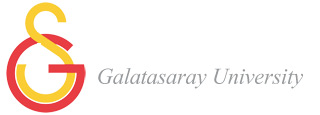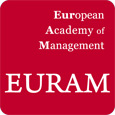 |
||||||
Gender, Race and Diversity in OrganisationsDeadline for paper submission: 15th January 2013 2pm CET SIG Chairwoman: Dr Beverly Dawn Metcalfe beverly.metcalfe@manchester.ac.uk, International Development, University of Manchester; Programme Chair: Dr Jawad Syed, University of Kent, j.syed@kent.ac.uk Dear Colleagues, We are pleased to invite you to submit a full paper to the Gender, Race and Diversity in Organizations Special Interest Group (GRDO SIG) for the EURAM Annual Conference which ( Istanbul 2013, 26 - 29th June). Our agenda for EURAM 2013 in Istanbul includes 4 standing tracks and two sub-tracks: 27a) Multiculturalism Paves the Road to Democratized Organizations 27b) Gender, Diversity and Inclusion: Multinational Perspectives. (See below for further details of the General Track and Subtracks) 29) Gender, Race Diversity, Migration and International Development - chaired by Akram Al-Ariss, Tricia Cleland Silva and Deborah Litvin 30) Women on Boards: Antecendants, Dynamics and Consequences of Diverse Board Composition - Joint track with Corporate Governance - chaired by Mariateresa Torchia, Kathrin Hansen, Celia de Anca and Patricia Gabaldon
GRDO General Track Keywords: Gender, diversity, race, organization, international development, management, Arab Spring, Middle East, social and political change, democracy Inequalities in organization and society are related to a myriad of difference dimensions, including gender, race, social-class, age, religion and disability. This not only reinforces social injustices, poverty and inequality but also encourages exploitation and the under utilization of human resources by organizations and nations. Current debates in the area of gender, diversity and development management research embrace inter alia: social theory and inequality, including intersectionality and postcolonialsm; the extent to which globalization has facilitated the spread of western ideas (or not) around feminism, organization and management, and what feminism and broader social movements means in diverse socio-cultural and geo-political contexts; and finally, the complexity and variety in HR and management policies and institutional frameworks that address issues of social inequality. Within this track, we seek to analyze varying socio-demographic, cultural and geo-political contexts and the implications for work organization, and management. This incorporates critiques of gender, race and diversity in a range of organizations, including TNCs, NGOs, and international organizations such as the UN. The track also seeks to unravel the ways in which gender, race and diversity are embedded within broader contemporary critiques of social and economic development. In line with the conference theme, acknowledging democracy, and that democratic processes perpetuates greater human wellbeing for all in institutions and society there is a need to broaden scholarship to explore how managing and organizing is shaping, or indeed being shaped by conceptualizations of democracy. Simply, how may the gendered dynamics of management organization processes unveil more in depth understandings’ of democracy in social organization/relations; and, to what extent is democratization, in diverse organization spheres gendered, racialised, and classed? This is particularly apt in the current stages of global capital development, as the Middle East is undergoing radical shifts in democratic organization and evaluating the organizing processes of democracy and governance. Given the conference is located in Istanbul, the heart where East meets West- we encourage papers that address the Arab Spring, Islamist Winter (and any aspect of gender and Middle East research. The events behind the Arab Spring and Islamist Winter (Metcalfe 2012) provides scholars opportunities to critically examine cultural and social changes, and the revolutionary pressures, calling for political regime and more transparent democratization processes. We hope to explore salient diversity and equality agendas that impact governance and democratization, relations between diverse feminisms’ and state formation. We value theoretically inspired papers based on leading social commentators and also empirically based research. We encourage contributions from scholars from a broad range of disciplines: economics, management, HRD/HRM, psychology, women’s/ men’s/ gender studies, geography, sociology, and development. We welcome studies of single countries and comparative research.
Sub Tracks of GRDO SIG General Track Sub-track 1: Multiculturalism Paves the Road to Democratized Organizations Programme Chairs Dr. Hamid H Kazeroony, Minnesota State Colleges and Universities, Inver Hills, USA hkazero@inverhills.edu, Finn Majlergaard Gugin Cross-Cultural Institute, Switzerland, Dr. Agata Stachowicz–Stanusch, Silesian University of Technology, Poland astachowicz@polsl.pl., Dr. K.Prabhakar, SRM University, India, profkprabhakar@gmail.com Dr. Vipin Gupta California State University, San Bernardino Global Management Center, USA vgupta@csusb.edu Keywords: multiculturism, transnationalism, power, identity, social change, Global North/South This sub-track invites papers interested in a range of scholarly debate on the role and effects of multiculturalism and transnationalism which echoes and reveals the nature of individual, group, and team interactions at social and organizational level, manifesting challenges and opportunities for businesses, compelling them to, effectively, appreciate its nature, influence, and causes, paving the way to more democratized organizational processes and dynamics. We encourage contributions from scholars from a broad range of disciplines: organization studies, management, human resource management, psychology, gender studies, sociology, politics, and economics. This sub-track invites papers interested in a range of scholarly debate on migration, Global South vs. Global North business relations; conceptualizations of multiculturalism and democratic organization; how transnationalism is reconfiguring understandings of global organization and social development; how transnationalism shapes meaning and understandings of individual, group, and social identities, transnational communication and digital media; changing demographics and implications for international HR and development;, off-shoring, and other relevant topics that can shed light on how Multiculturalism Paves the Road to Democratized Organizations. Papers among other innovative approaches may address gender, race, and diversity role in the democratization of organization to advance knowledge and critique of: (1) new models in the analysis of individual cultural orientation and approach to multiculturalism as a way to democratize organizations, (2) theoretical constructs for the examination of multiculturalism as a source the foundation of democratized organization, (3) an examination of educational approaches to prepare new employees and executives in successfully operating in multicultural settings with leadership perspectives that can promote organizational democracy, and Sub-track 2: Multinational Perspectives on Gender, Diversity and Inclusion Programme Chairs Nada Kakabadase Nada.kakabadse@northampton.ac.uk and Dr Nicholas Theodorakopoulos n.theodorakopoulos@aston.ac.uk Keywords: Multinational, International HRM, global diversity and leadership This sub-track aims to examine the complexity of managing gender, race and diversity in multinational corporations. It encourages critical debate of how MNCs are devising inclusive strategies for integrating gender, race and diversity in business planning in diverse geo-political contexts, and how MNCs develop HRM policies to cope with diverse workforce demographics, in order to encourage the inclusion of all marginalized groups. We especially encourage scholarly work that addresses leadership development and diversity in MNCs, global diversity and training. We are concerned with issues of what it means to democratize management organization in an MNC, how and why MNCs may shape or hinder democratic change in organization and social relations, and welcome papers that address the dynamics of how MNCs operate in diverse governance regimes, and whether this impacts decisions for investor strategies’ and MNC development. Please don’t forget to enroll in GRDO SIG when you register for EURAM conference. Strategic Interest Groups > Gender, Race and Diversity in Organisations |
||||||
Copyright © 2012 EURAM |
||||||


